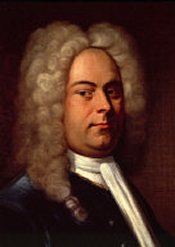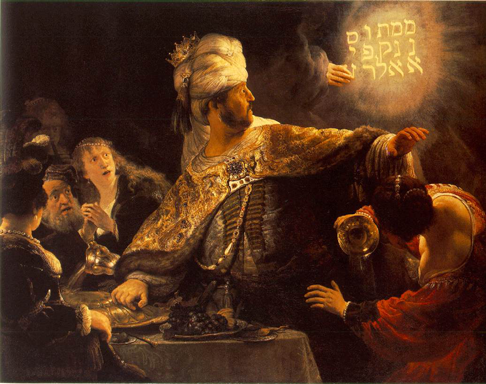Recently in Performances
English Touring Opera are delighted to announce a season of lyric monodramas to tour nationally from October to December. The season features music for solo singer and piano by Argento, Britten, Tippett and Shostakovich with a bold and inventive approach to making opera during social distancing.
This tenth of ten Live from London concerts was in fact a recorded live performance from California. It was no less enjoyable for that, and it was also uplifting to learn that this wasn’t in fact the ‘last’ LfL event that we will be able to enjoy, courtesy of VOCES8 and their fellow vocal ensembles (more below …).
Ever since Wigmore Hall announced their superb series of autumn concerts, all streamed live and available free of charge, I’d been looking forward to this song recital by Ian Bostridge and Imogen Cooper.
Although Stile Antico’s programme article for their Live from London recital introduced their selection from the many treasures of the English Renaissance in the context of the theological debates and upheavals of the Tudor and Elizabethan years, their performance was more evocative of private chamber music than of public liturgy.
Evidently, face masks don’t stifle appreciative “Bravo!”s. And, reducing audience numbers doesn’t lower the volume of such acclamations. For, the audience at Wigmore Hall gave soprano Elizabeth Llewellyn and pianist Simon Lepper a greatly deserved warm reception and hearty response following this lunchtime recital of late-Romantic song.
For this week’s Live from London vocal recital we moved from the home of VOCES8, St Anne and St Agnes in the City of London, to Kings Place, where The Sixteen - who have been associate artists at the venue for some time - presented a programme of music and words bound together by the theme of ‘reflection’.
'Such is your divine Disposation that both you excellently understand, and royally entertaine the Exercise of Musicke.’
‘And there was war in heaven: Michael and his angels fought against the dragon; and the dragon fought and his angels, And prevailed not; neither was their place found any more in heaven … that old serpent … Satan, which deceiveth the whole world: he was cast out into the earth, and his angels were cast out with him.’
There was never any doubt that the fifth of the twelve Met Stars Live in Concert broadcasts was going to be a palpably intense and vivid event, as well as a musically stunning and theatrically enervating experience.
‘Love’ was the theme for this Live from London performance by Apollo5. Given the complexity and diversity of that human emotion, and Apollo5’s reputation for versatility and diverse repertoire, ranging from Renaissance choral music to jazz, from contemporary classical works to popular song, it was no surprise that their programme spanned 500 years and several musical styles.
The Academy of St Martin in the Fields have titled their autumn series of eight concerts - which are taking place at 5pm and 7.30pm on two Saturdays each month at their home venue in Trafalgar Square, and being filmed for streaming the following Thursday - ‘re:connect’.
The London Symphony Orchestra opened their Autumn 2020 season with a homage to Oliver Knussen, who died at the age of 66 in July 2018. The programme traced a national musical lineage through the twentieth century, from Britten to Knussen, on to Mark-Anthony Turnage, and entwining the LSO and Rattle too.
With the Live from London digital vocal festival entering the second half of the series, the festival’s host, VOCES8, returned to their home at St Annes and St Agnes in the City of London to present a sequence of ‘Choral Dances’ - vocal music inspired by dance, embracing diverse genres from the Renaissance madrigal to swing jazz.
Just a few unison string wriggles from the opening of Mozart’s overture to Le nozze di Figaro are enough to make any opera-lover perch on the edge of their seat, in excited anticipation of the drama in music to come, so there could be no other curtain-raiser for this Gala Concert at the Royal Opera House, the latest instalment from ‘their House’ to ‘our houses’.
"Before the ending of the day, creator of all things, we pray that, with your accustomed mercy, you may watch over us."
The doors at The Metropolitan Opera will not open to live audiences until 2021 at the earliest, and the likelihood of normal operatic life resuming in cities around the world looks but a distant dream at present. But, while we may not be invited from our homes into the opera house for some time yet, with its free daily screenings of past productions and its pay-per-view Met Stars Live in Concert series, the Met continues to bring opera into our homes.
Music-making at this year’s Grange Festival Opera may have fallen silent in June and July, but the country house and extensive grounds of The Grange provided an ideal setting for a weekend of twelve specially conceived ‘promenade’ performances encompassing music and dance.
There’s a “slide of harmony” and “all the bones leave your body at that moment and you collapse to the floor, it’s so extraordinary.”
“Music for a while, shall all your cares beguile.”
The hum of bees rising from myriad scented blooms; gentle strains of birdsong; the cheerful chatter of picnickers beside a still lake; decorous thwacks of leather on willow; song and music floating through the warm evening air.
Performances

04 Sep 2008
HANDEL: Belshazzar
Although performances of Handel’s more obscure large-scale works are relatively common in London, it is far less common that they are given in a venue as large and high-profile as the Royal Albert Hall, with a line-up of conductor and soloists that will attract a full house for a lengthy and static work on a hot summer evening.
And yet it happened, and Handel’s 1744
oratorio Belshazzar with libretto by Charles Jennens was brought to
vivid and entertaining life by the veteran Handelian maestro, Sir Charles
Mackerras.
The real highlight was the singing of the Choir of the Enlightenment,
which could hardly have been better. Unlike many of London’s high-profile
professional choirs, they are selected on a concert-by-concert basis,
allowing casting decisions to be made with regard to which singers will be
right for the work in hand. The bright forwardness of the sound in their
opening chorus, ‘Behold, by Persia’s hero made’, was refreshing indeed,
setting the tone for the rest of the evening, and they performed with
impeccable ensemble throughout, with clear dramatic definition between their
various guises as the Babylonians, Persians or Jews. The chorus bass William
Gaunt delivered a particularly fine solo recitative in the tiny role of
Arioch. Only in the feast scene did the sound from the chorus sound too clean
and English, rather short on Babylonian debauchery.
Paul Groves sang the title role with a pleasant enough tone, but it was
rather monochromatic, and being primarily a Mozartian, he did not seem nearly
as comfortable or well-versed in the Handel idiom as his fellow soloists. He
was also the only one of the five soloists not to make any attempt at facial
and physical acting to complement his vocal performance; Belshazzar is, after
all, supposed to be a king, and a strong-willed one at that.
At the emotional heart of the oratorio is the struggle of Nitocris,
Belshazzar’s mother, to oppose the son she loves and allow him to be
conquered and killed by the invading Persians. Here we had the luxury of the
lovely, unaffected sound, intelligent characterisation and expressive vocal
colour of soprano Rosemary Joshua.
The countertenor Bejun Mehta was very strong but a touch strident as
Cyrus, the leader of the Persian army, while fellow countertenor Iestyn
Davies exuded calm and noble piety as Daniel, making a beautiful sound in the
process. Although Gobrias is only a small role, it was given maximum value by
the young bass Robert Gleadow, a graduate of the Royal Opera’s young artists’
programme, who delivered the almost pictorial falling scales of ‘Behold the
monstrous human beast/Wallowing in excessive feast’ with dramatic relish.
 King Belshazzar of Babylon by
Rembrandt Harmenszoon van Rijn
King Belshazzar of Babylon by
Rembrandt Harmenszoon van Rijn
Mackerras conducted the Orchestra of the Age of Enlightenment in an
account of the score which was robust, energetic and taut. There were several
cuts — some, evidenced by gaps in the numbering in the concert programme,
scheduled well in advance; others seemingly trimmed later in the day as there
were several numbers and parts of numbers printed in the programme but absent
from the performed version. In any case, it wasn’t only Mackerras’s brisk
tempi which made the concert fly by in a full half hour less than the
scheduled running time.
Ruth Elleson © 2008

